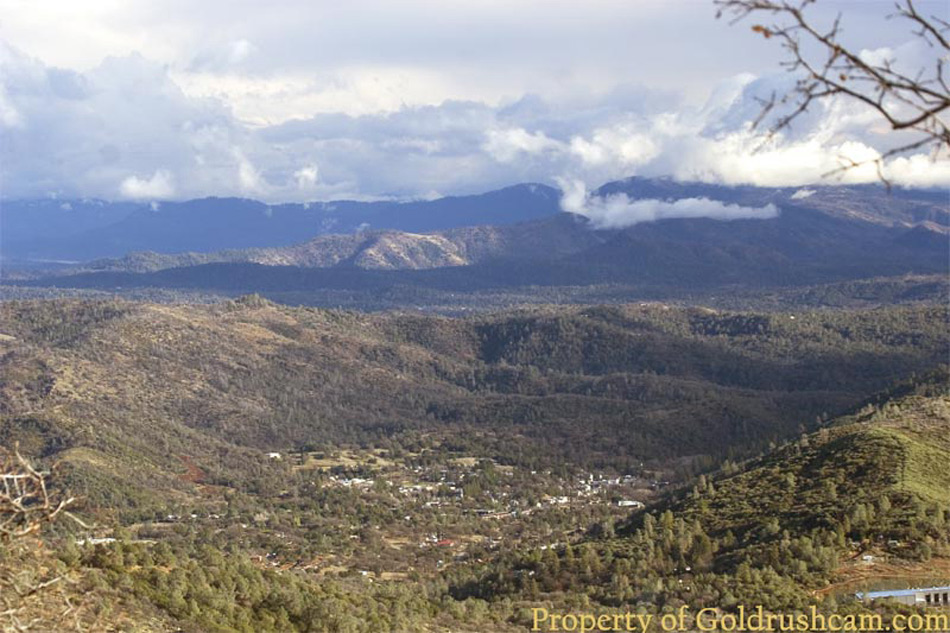
Mariposa, California
Sierra Sun Times file photo
June 17, 2023 - The Legal Hotline has received several calls from listing agents who, after taking a listing on vacant land, have become suspicious that the person who signed their listing is not the actual owner. This aligns with a nationwide trend of title companies reporting that vacant land property scams are on the rise.
The Scam
Of course, in this scam, the "owner" is not actually the owner at all but instead is an identity theft criminal. The criminal poses as the owner of vacant land and, taking advantage of e-notaries and online communications, attempts to defraud the actual owner, the buyer and every service provider involved by selling the property under market with an exceptionally quick escrow and pocketing the proceeds.
Know the tell-tale signs and red flags of the vacant land property scam
These criminals usually use a number of tactics designed to keep their crimes from being discovered until it's too late.
- They typically target unencumbered property
- Vacant land is usually involved. Otherwise, the chances of the true owner finding out are much higher.
- Ditto for estate property where the property has not been properly transferred to heirs after the death of the owner
- A new deed may have been recently recorded. This is an effort to erase the prior owner from the trail of communication and keep the scammer from being found out.
- They demand a quick closing
- In an effort to sell the property quickly, they price the property well under market
- They will never meet in person, but all communication is online through email or text.
- If communication is via phone, the call will come through a burner phone.
- They will refuse to sign in person and will demand an e-notary insisting on their own personally chosen notary or they will simply make the notary arrangements themselves
- The closing will be a mail out closing or remote/e-closing, even if the owner resides in the same area as the property
- They demand a cash close
- The sales proceeds are distributed to a person who is not on title
Sometimes it's obvious
Sometimes one giant clue might just fall into your lap when a person, other than the person who signed your listing, contacts you to say they are not selling their property, and that they are the true owner. Take this very, very seriously. In this circumstance your best course of action is to speak with your broker, who may consult with legal counsel regarding cancelling the listing.
What steps could you take if you suspect your client is not the true owner?
Here are other steps that a listing agent may consider taking, but only if other red flags are already present:
- Investigate the property. As the listing agent you'll already know a great deal about the transaction. You'll know if the property is vacant land, part of an estate, whether the property is underpriced and how the seller is choosing to communicate. But you might also look at the preliminary title to see if the mortgage is paid off and free of liens. Likewise, a sophisticated scammer may have recently recorded a fraudulent deed transferring property to themselves or to a shell company to maintain their anonymity.
- Establish the property owner's identity. If the transaction is really starting to smell, you might consider independently researching the identity of the owner. You may be able to find a picture of the owner or other identifying information that can help you confirm who is the true owner.
- You might consider trying to contact the owner of record directly. Then you'll know if it’s the same person who signed your listing.
What to do if you become convinced that the person who signed your listing is not the actual owner?
As mentioned above, the first thing to do is to consult with your broker (who may review the matter with legal counsel) about canceling the listing agreement. In this circumstance, a negotiated cancellation is best using the Cancellation of Listing form (C.A.R. Form COL). A negotiated cancellation helps to avoid claims of breach of the listing agreement.
Although your instinct may be to immediately report your suspicions to the police or the title company, you and your broker may wish to consult with an attorney before doing so, to assess possible issues related to confidentiality, fiduciary duty, or other potential legal and risk management issues. Any decision to warn others or publicize information about the purported scammer should be made carefully, after close consideration of the specific facts in your situation, and only after consulting with the broker.
For more information see this article, "Beware the Vacant Property Scam: Criminals Leave Plenty of Clues" by Alliant National Title Insurance Company
Source: C.A.R.








